
Most Read

PayPal Charity Scams: Scammers Use Fake Charities to Rob You

Spot & Avoid These 11 Common Facebook Messenger Scams

How to Tell if Nikes Are Fakes: From Tags to the Stitching
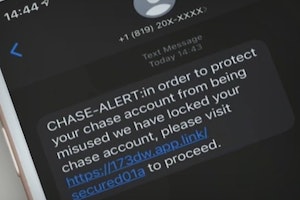
Real Chase Fraud Text Alert or Scam Message?
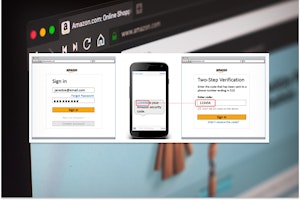
Received an Amazon OTP Text? It Could Be a Scam
Charities In Depth
- What are Charity Scams?
- Red Flags of Fake Charities and Scams
- Common Charity Scams
- How to Beat Charity Scams and Identity Fake Charities
- How to Recover from a Charity Scam
Giving USA Foundation's annual report on U.S. philanthropy states that Americans gave over $470 billion to charity in 2020. But just because a person claims to be collecting contributions for a charity doesn't mean they are. The best way to ensure that you're not giving to fake charities is by learning about charity scams and how scammers take advantage of people's goodwill.
What are Charity Scams?
In a charity scam, the scammer takes advantage of your giving nature by claiming to be from a legitimate charity or making up a fake charity and asking for donations. This may be after a disaster when the entire nation is wondering how they can help with relief or during the holidays when the country is in a giving mood.
The scammer may call you on the phone and ask you to pay with a gift card or wire transfer. They could take advantage of crowdfunding websites and set up a fake charity there. Or they could send you an invoice directly from PayPal asking for a donation hoping you won't do any research before you click the link and make a payment.
Red Flags of Fake Charities and Scams
While a scammer can be pretty convincing when they are trying to steal your money, you can avoid falling victim to a charity scam if you do your due diligence and look out for red flags like these:
- They ask for payment of a specific or unconventional type like a gift card, cryptocurrency, wire transfer, or cash.
- The scammer pressures you to give money immediately (they do this to prevent you from doing research and discovering that it's a fake charity).
- You get a thank you email from a charity you never contributed to.
- They call before 8 a.m. or after 9 p.m., which genuine charities will never do.
- They are vague about the charity's name or purpose.
- The charity's email or website has spelling, grammatical, or technical errors.
- The donation request came via a robocall or pre-recorded message.
Common Charity Scams
There are probably just as many charity scams as there are charities in the world. It is a popular way for scammers to cheat you out of your money.
PayPal Charity Scams
In a PayPal charity scam, you may get an unsolicited email from a person who claims to be from a charity asking for a donation through PayPal. The scammers will use PayPal to create an invoice for the fake charity and send it using PayPal's system.
Once you click on the PayPal link and make the payment, the scammer will be gone with your money. Unfortunately, in some cases, you may never even realize that the money fell into the wrong hands.
Disaster Charity Scams
In this charity scam, the scammer will take advantage of a current disaster that is in the news and claim they are collecting funds to help the victims. The scammer may even claim to be from the Internal Revenue Service (IRS) or working on their behalf.
They may say they are having trouble locating some victims of the disaster and request money to help them file casualty loss claims or get tax refunds and that your money can help.
Crowdfunding for Fake Charities
Modern internet technology has changed charities. Crowdfunding and social media sites allow them to quickly reach a wider group of people, but it has given scammers the same advantage.
A scammer will set up fake charities on sites like GoFundMe and Kickstarter. Then, they promote the charity through social media and take off with the money of everyone who didn't do their research before they donated.
Holiday Charity Scams
Scammers often take advantage of the holidays when people are in a giving mood to pressure them into giving to fake charities. They may even try to convince you that you donated during the last holiday season. Real charities accept donations all year round, not just during the holiday season.
Police, Firefighter, and Military Charity Scams
The police, firefighters, and military men and women of this country spend their lives protecting people from harm and are respected by a large part of the population. Unfortunately, scammers take advantage of this respect by claiming they are collecting for your local police department, fire station, or military branch.
Some legitimate charities do this, but there are just as many scammers out there hoping you won't check up on them before you donate.
How to Beat Charity Scams and Identity Fake Charities
Luckily, there are a lot of resources you can use to ensure a charity is legitimate. If you are contacted by someone claiming to be collecting contributions for a charity and notice any red flags, use these tips to avoid falling victim to the scam:
- Research the charity at these sites to determine if it is real:
- Don't click on any links in emails or texts. If the charity is legitimate, they should have an official website or phone number you can call to donate.
- Ask for details about where the money is going.
- Search online for the charity along with the words "complaint," "review," "fraud," or "scam."
- Confirm the charity's name, website, and mailing address to determine if they are trying to impersonate a well-known charity.
- Double-check the charity name with Caller ID. While this can be spoofed, an actual charity will always have a Caller ID that matches their name.
- Don't give any personal details to the caller.
- Pay with a credit card so that you can dispute the charge if it turns out to be a scam.
How to Recover from a Charity Scam
The following steps can help you protect your identity, data, and finances if you have fallen victim to a charity scam.
Document the Scam
Keep all the information you have regarding the scam for authorities. Some details you will want to record include the name of the person you talked to, any phone numbers you called, the email you were sent, or the website you were directed to.
Report Fake Charities
Collect all the details about the charity scam and report it to the authorities, including:
- The Federal Trade Commission (FTC)
- Your state's Consumer Protection Office
- The National Center for Disaster Fraud if the fraud relates to a natural disaster
- Your state's Attorney General's Office
- Your local police department
Contact Your Financial Institution
You should notify your bank, credit card company, money wire service, or gift card company if you have been scammed. Dispute the charges or ask for them to be reversed. Inform them if you entered banking information on a phishing website, and they will try to help you prevent the loss of your money.
Tell People You Know About Fake Charities
Charity scammers usually target as many people as they can—the best way to protect your friends from falling victim to the same scam is to tell them about it.
Scams Relating to Charities

PayPal Charity Scams: Scammers Use Fake Charities to Rob You
These scams target those who want give back, preying on your generous nature to scam you out of your money.
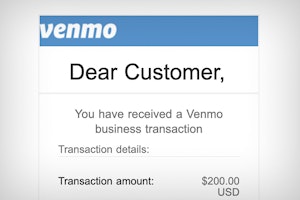
Selling on Facebook Marketplace? Beware of Fake Venmo Emails
Scammers are sending fake Venmo emails to Facebook Marketplace sellers in an attempt to steal login information and money.
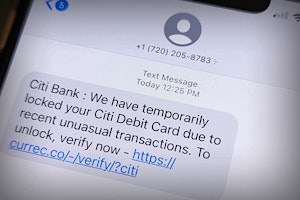
Citibank Text Message Scam: Locked Debit Card Alert Is Fake
If you've received a locked debit card text message from Citibank, it's likely a scam. Don't click on the link and delete the text message.

Real Chase Fraud Text Alert or Scam Message?
If you receive a text message from Chase Bank, don't click on any links or call the phone number listed—it could be a scam designed to steal your information and money.

Amex Fraud Text Alert Scams: Spotting a Fraud
If you receive a text message from American Express, don't click on any links or call the phone number listed—it could be a scam designed to steal your information and money.

Fake Verizon Text Messages: How to Avoid a Scam
Verizon may send you text messages from time to time with account updates or data usage alerts, but beware—most of these aren't really from Verizon but scammers.
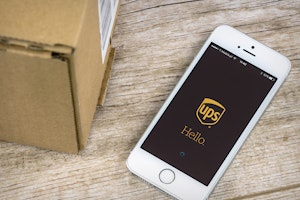
Get an Unexpected Delivery Alert? It May be a UPS Text Scam
Scammers are using SMS messages to send fake alerts to customers regarding a package delivery. Here's what to know about this scam.
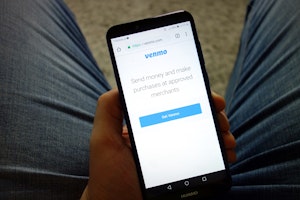
Venmo Text Scam: Don't Fall For These Fake Messages
If you received a text from Venmo with a link to verify a payment or deposit, or are asked to complete a survey in exchange for money, it may be a scam.

Truist Text Alert: How to Identify a Real Text from a Scam
You may think that that Truist have sent you a text alert about your account. Here's how to check if it is actually a scam.

Wait! That Walmart Giveaway Text May be a Scam!
Fake texts are being sent to consumers claiming a hefty sum is waiting for them on a Walmart gift card, but falling for this scam puts you at risk of identity theft.
Guides Relating to Charities

Spot & Avoid These 11 Common Facebook Messenger Scams
With every Facebook Messenger scam, the attacker is trying to steal from you—whether they’re after money, login credentials, or other personal information.

How to Get Verified on TikTok
Securing that little blue checkmark can mean brand collabs, sponsorship opportunities, or protecting your unique content from impersonators.

How to Tell if Nikes Are Fakes: From Tags to the Stitching
Nike is one of the biggest brands targeted by counterfeiters and scammers - be extra careful with Nike products from non-official retailers as you could end up with a fake

Funeral Homes & Prices - What Are The Costs & Your Rights?
Average prices from funeral homes range between $8k to $14k and consumers are meant to be protected by a 'Funeral Rule' - what are your consumer rights?

How to View Your Amazon Archived Orders & Hide Search History
If you share your account with multiple users, archiving your past orders is a good way to keep others from seeing your orders and ruining a surprise or seeing private orders.
News Relating to Charities

Urgent CDC Warning: Eye Drops Linked to 3 Deaths, Loss of Vision
The CDC is warning eye drops users of a rare bacterial infection from 2 brands of eye drops. The infection is resistant to antibiotics and has resulted in the loss of vision, loss of eyeballs and the death of 3 patients.

Banks May Refund More Zelle Scam Victims in 2023
Zelle scams have reached a serious volume. New reports suggest that banks are looking at new refund protections for customers in 2023.

Optus Data Breach - One of the Worst Cyberattacks in Australia
Hackers have gained access to 9.8 million customer records from Optus in Australia, exposing personal information such as driver licence, medicare and passport details.

Roe vs. Wade Overturned: Abortion Rights in Your State
Find out what the overturning of Roe vs. Wade means for abortion rights in your state.
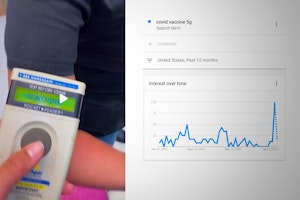
Searches for "COVID Vaccine 5G" Hit All-Time High, But Microchips Definitely Not in Vaccine
The number of people searching for the term "COVID vaccine 5G" on Google has just hit an all-time high, but there's one way to be sure that there are no microchips.